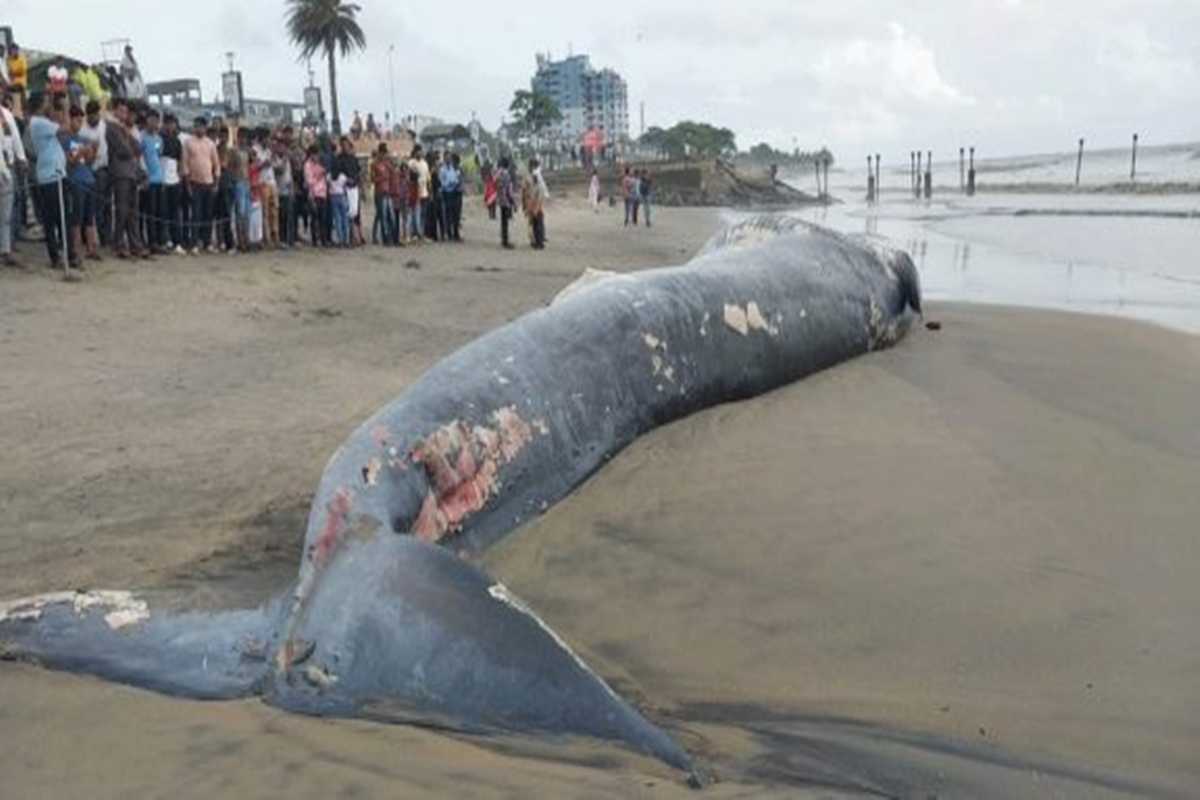A Blue Whale carcass was discovered on Kozhikode Beach amidst rainy conditions on a Saturday morning. Local fishermen were the first to come across this massive find at South Beach around 10:15 am.
Observers noted that the carcass had already begun to decompose, indicating it had been adrift for more than two days. Measuring an impressive 15 meters (approximately 50 feet) in length, experts suggested it was a juvenile specimen, as fully grown Blue Whales typically reach lengths of around 20 meters.
Advertisement
Pramod, the health officer overseeing Kozhikode Corporation, shared plans with the local media for a post-mortem examination to ascertain the cause of death. Following this investigation, the standard protocol would involve the burial of the carcass on the beach, facilitated by the excavation of a substantial pit.
Video footage capturing the presence of the whale’s carcass quickly gained popularity on Instagram, drawing inquisitive onlookers from the local community near Kozhikode beach. Numerous individuals, including children, flocked to the beach to witness the extraordinary sight.
This occurrence is not an isolated incident. Earlier, another whale had washed ashore at Meghavaram Beach in Santabommali mandal, Srikakulam. Fishermen noted that such whale strandings are infrequent in the Bay of Bengal and Arabian Sea, speculating that these creatures may have met their demise in the shallower waters.
In a related incident, a group of fishermen hailing from Vizhinjam stumbled upon a valuable discovery – Ambergris, also known as whale vomit, with an estimated worth of ₹28 crore. They promptly handed over this precious substance to the authorities.
These events underscore the diverse and often mysterious marine life inhabiting the vast oceans surrounding our coasts, captivating the interest and curiosity of both local communities and experts alike.
